Russian fascists in Manchuria. How emigrants dreamed of destroying the USSR with the help of Japan
30 August 1946 The Military Collegium of the Supreme Court of the USSR completed the consideration of the case initiated by 26 August on the accusation that a group of people had been treating and conducting armed struggle against the Soviet Union in order to overthrow the Soviet system. Among the defendants - G.S. Semenov, A.P. Baksheev, L.F. Vlasyevsky, B.N. Sheptunov, L.P. Okhotin, I.A. Mikhailov, N.A. Ukhtomsky and K.V. Rodzaevsky. Familiar names.
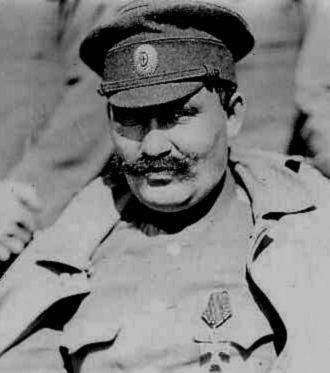 Grigory Semyonov (1890-1946) is the most famous Cossack ataman, lieutenant-general of the White Army, who commanded anti-Soviet armed forces operating in the Trans-Baikal and Far East during the Civil War. Semenovtsy became famous for their atrocities even against the background of other, in general, armed forces of the Civil War period, which are not prone to excessive humanism. The hereditary Transbaikalian Cossack, Grigory Semyonov, even before becoming a chieftain, showed himself to be a brave warrior on the fronts of the First World War. A graduate of the Orenburg Cossack Cadet School, he fought on the territory of Poland - as part of the Nerchinsky regiment of the Ussurian brigade, then participated in a campaign in Iranian Kurdistan, fought on the Romanian front. When the revolution began, Semenov turned to Kerensky with a proposal to form a Buryat-Mongol regiment and received this "go-ahead" from the Provisional Government. It was Semenov in December 1917 that broke up the Soviets in Manchuria and formed the Daur Front. The first experience of Semenov’s collaboration with the Japanese also belongs to the beginning of the Civil War in Russia. Already in April, 1918 was part of the Special Manchu Detachment, formed by Semenov, a Japanese unit consisting of 540 soldiers and 28 officers under the command of Captain Okumur. January 4 1920 A.V. Kolchak gave G.M. Semenov full military and civilian power on the "Russian eastern outskirts." However, by 1921, the position of whites in the Far East has deteriorated so much that Semenov was forced to leave Russia. He emigrated to Japan. After the puppet state of Manchukuo was created in NNXX in Northeast China under the formal control of the last Qing emperor Pu Yi, and was virtually completely controlled by Japan, Semenov settled in Manchuria. He was given a house in Dairen and was granted a pension in 1932 Japanese Yen.
Grigory Semyonov (1890-1946) is the most famous Cossack ataman, lieutenant-general of the White Army, who commanded anti-Soviet armed forces operating in the Trans-Baikal and Far East during the Civil War. Semenovtsy became famous for their atrocities even against the background of other, in general, armed forces of the Civil War period, which are not prone to excessive humanism. The hereditary Transbaikalian Cossack, Grigory Semyonov, even before becoming a chieftain, showed himself to be a brave warrior on the fronts of the First World War. A graduate of the Orenburg Cossack Cadet School, he fought on the territory of Poland - as part of the Nerchinsky regiment of the Ussurian brigade, then participated in a campaign in Iranian Kurdistan, fought on the Romanian front. When the revolution began, Semenov turned to Kerensky with a proposal to form a Buryat-Mongol regiment and received this "go-ahead" from the Provisional Government. It was Semenov in December 1917 that broke up the Soviets in Manchuria and formed the Daur Front. The first experience of Semenov’s collaboration with the Japanese also belongs to the beginning of the Civil War in Russia. Already in April, 1918 was part of the Special Manchu Detachment, formed by Semenov, a Japanese unit consisting of 540 soldiers and 28 officers under the command of Captain Okumur. January 4 1920 A.V. Kolchak gave G.M. Semenov full military and civilian power on the "Russian eastern outskirts." However, by 1921, the position of whites in the Far East has deteriorated so much that Semenov was forced to leave Russia. He emigrated to Japan. After the puppet state of Manchukuo was created in NNXX in Northeast China under the formal control of the last Qing emperor Pu Yi, and was virtually completely controlled by Japan, Semenov settled in Manchuria. He was given a house in Dairen and was granted a pension in 1932 Japanese Yen. "Russian Bureau" and Japanese intelligence services
In Manchuria, a large number of Russian emigrants concentrated. In the first place, these were officers and Cossacks ousted from Transbaikalia, the Far East, and Siberia after the victory of the Bolsheviks. In addition, quite numerous Russian communities lived in Harbin and some other Manchu cities since pre-revolutionary times, including engineers, technical specialists, merchants, and employees of the Chinese Eastern Railway. Harbin was even called the “Russian city”. The total number of the Russian population of Manchuria was at least 100 thousand people. The Japanese special services that controlled the political situation in Manchuku were always extremely attentive and interested in the Russian emigration, since they considered it from the perspective of their use against Soviet power in the Far East and Central Asia. In order to more effectively manage political processes in the Russian emigration, in 1934 The Bureau of Russian Emigrants in the Manchurian Empire (BREM) was established. He was headed by Lieutenant General Benjamin Rychkov (1867-1935) - an old royal officer, until May 1917. He commanded the 27 Army Corps, then the Tyumen Military District Directoire, and later served in Semenov. In 1920 was he emigrated to Harbin and got a job as head of the railway police department at Manchuria station. Then he worked as a proofreader in the Russian printing house. In the Russian emigration, the general enjoyed a certain influence, so he was entrusted with leading the structure responsible for consolidating the emigrants. The Bureau of Russian Emigrant Affairs was created to strengthen ties between immigrants and the government of Manzhou-go, to assist the Japanese administration in resolving issues to streamline the life of the Russian emigre community in Manchuria. However, in fact it was BREM that became the main structure for the preparation of reconnaissance and sabotage groups, then sent by Japanese intelligence to the territory of the Soviet Union. In the middle of 1930's. The formation of sabotage detachments, recruited by Russian émigrés, who were in the field of the ideological influence of the Russian bureau, began. BREM has covered almost the entire active part of the Russian emigration - 44 thousands of Russians from 100 thousands living in Manchuria, were registered with the Bureau. The organization published publications - Luch Asia magazine and the Voice of Emigrants newspaper, had its own printing house and library, and also engaged in cultural, educational and propaganda activities in the emigrant community. After the death of General Rychkov, which followed in 1935, Lieutenant-General Alexei Baksheev (1873-1946), the longtime associate of Ataman Semenov, who served as his deputy Ataman of the Trans-Baikal Army, became the new head of the BREM. Hereditary Transbaikalian Cossack, Baksheev graduated from a military school in Irkutsk, participated in the Chinese campaign 1900-1901, then - in the First World War, on whose fronts he rose to the rank of military sergeant. Emigrating to 1920 in Manchuria, Baksheev settled in Harbin and in 1922.
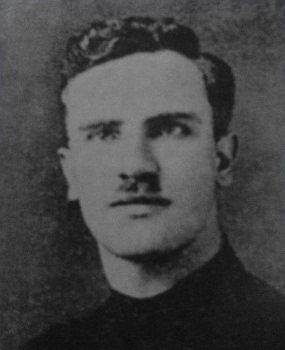 Konstantin Vasilievich Rodzaevsky (1907-1946) was responsible for cultural and educational work in the Bureau of Russian Emigrant Affairs - a person, to some extent more remarkable than the old royal generals, who were considered to be formal leaders of emigration. First, Konstantin Rodzaevsky, due to his age, did not have time to either take part in the Civil War, or even catch her in more or less adulthood. He spent his childhood in Blagoveshchensk, where his father, Vladimir Ivanovich Rodzaevsky, worked as a notary. Before 18, Kostya Rodzaevsky led the way of life of an ordinary Soviet young man - he finished school, even managed to join the ranks of the Komsomol. But in 1925, the life of young Kostya Rodzaevsky turned in unexpected ways - he fled from the Soviet Union, crossed the Soviet-Chinese border along the Amur River, and ended up in Manchuria. Mother Kostya Nadezhda, having learned that her son is in Harbin, obtained a Soviet exit visa and went to him, trying to persuade him to go back to the USSR. But Constantine was adamant. In 1928, the father of Rodzaevsky and his younger brother also fled to Harbin, after which the GPU authorities arrested Nadezhda’s mother and her daughters Nadezhda and Nina. In Harbin, Konstantin Rodzaevsky began a new life. He went to study at the Harbin Law Faculty - a Russian émigré educational institution, where he fell under the ideological influence of two teachers - Nikolai Nikiforov and George Hins. George Hins (1887-1971), he served as deputy dean of the Harbin Law School and gained fame as a developer of the concept of Russian solidarism. Hins was a categorical opponent of the concept of “Shinovekhovstvo” spread among the emigre community, which was recognition of the Soviet Union and the need to cooperate with the Soviet government. As for Nikolai Nikiforov (1886-1951), he adhered to even more radical views at the end of 1920-s. led a group of students and teachers of the Harbin Law Faculty who created a political group with the quite clear name “Russian Fascist Organization”. Among the creators of this organization was young Konstantin Rodzaevsky. The activities of the Russian fascists in Harbin almost immediately after their organizational unification became very noticeable.
Konstantin Vasilievich Rodzaevsky (1907-1946) was responsible for cultural and educational work in the Bureau of Russian Emigrant Affairs - a person, to some extent more remarkable than the old royal generals, who were considered to be formal leaders of emigration. First, Konstantin Rodzaevsky, due to his age, did not have time to either take part in the Civil War, or even catch her in more or less adulthood. He spent his childhood in Blagoveshchensk, where his father, Vladimir Ivanovich Rodzaevsky, worked as a notary. Before 18, Kostya Rodzaevsky led the way of life of an ordinary Soviet young man - he finished school, even managed to join the ranks of the Komsomol. But in 1925, the life of young Kostya Rodzaevsky turned in unexpected ways - he fled from the Soviet Union, crossed the Soviet-Chinese border along the Amur River, and ended up in Manchuria. Mother Kostya Nadezhda, having learned that her son is in Harbin, obtained a Soviet exit visa and went to him, trying to persuade him to go back to the USSR. But Constantine was adamant. In 1928, the father of Rodzaevsky and his younger brother also fled to Harbin, after which the GPU authorities arrested Nadezhda’s mother and her daughters Nadezhda and Nina. In Harbin, Konstantin Rodzaevsky began a new life. He went to study at the Harbin Law Faculty - a Russian émigré educational institution, where he fell under the ideological influence of two teachers - Nikolai Nikiforov and George Hins. George Hins (1887-1971), he served as deputy dean of the Harbin Law School and gained fame as a developer of the concept of Russian solidarism. Hins was a categorical opponent of the concept of “Shinovekhovstvo” spread among the emigre community, which was recognition of the Soviet Union and the need to cooperate with the Soviet government. As for Nikolai Nikiforov (1886-1951), he adhered to even more radical views at the end of 1920-s. led a group of students and teachers of the Harbin Law Faculty who created a political group with the quite clear name “Russian Fascist Organization”. Among the creators of this organization was young Konstantin Rodzaevsky. The activities of the Russian fascists in Harbin almost immediately after their organizational unification became very noticeable. Russian fascist party
26 May 1931 was held in Harbin 1-th Congress of Russian fascists, which was established Russian Fascist Party (RFP). Konstantin Rodzaevsky, who has not yet turned 24 years old, was elected its general secretary. The size of the party initially amounted to about 200 people, but by 1933, it increased to 5 000 activists. The ideology of the party was based on the conviction that the Bolshevik regime would soon collapse, which was viewed as anti-Russian and totalitarian. Like the Italian fascists, the Russian fascists were both anti-communists and anti-capitalists. A black uniform was introduced into the game. Printed publications were published, first of all, the Nation magazine, which was published since April 1932, and since October 1933, the newspaper Nash Put, edited by Rodzaevsky. However, the RFP, which originated in Manchuria, was not the only organization of Russian fascists in those years. In 1933, the All-Russian Fascist Organization (WFD) was created in the USA, at the origins of which was Anastasii Andreyevich Vonsyatsky (1898-1965) - the former captain of Denikin's Volunteer Army, who served in the Ulan and Hussar regiments, and later emigrated to the United States. Vonsyatsky when he was an officer in the Volunteer Army, fought against the Reds on the Don, Kuban, in the Crimea, but was evacuated after being infected with typhoid. Having created the All-Russian Fascist organization, Captain Vonsyatsky began to search for contacts with other Russian fascists and during one of his travels he visited Japan, where he entered into negotiations with Konstantin Rodzaevsky.
3 April 1934 in Yokohama The Russian Fascist Party and the All-Russian Fascist Organization merged into a single structure, called the All-Russian Fascist Party (WWF). 26 April 1934 was held in Harbin by the 2 Russian Fascist Congress, at which Rodzaevsky was elected General Secretary of the All-Russian Fascist Party, and Vonsyatsky - Chairman of the WFTU Central Executive Committee. However, already in October, 1934 between Rodzaevsky and Vonsyatsky began contradictions, which led to the delimitation. The fact is that Vonsyatsky did not share the anti-Semitism inherent in Rodzaevsky and believed that the party should fight only against communism, and not against the Jews. In addition, Vonsyatsky negatively treated the figure of Ataman Semenov, with whom Rodzaevsky closely cooperated with the structures of the Bureau of Russian Emigrant Affairs in Manchukuo. According to Vonsyatsky, the Cossacks, on which Rodzaevsky called for reliance, no longer played a special role in the changed political situation, so the party should have been looking for a new social base. Finally. Vonsyatsky dissociated himself from the supporters of Rodzaevsky, who, however, put the entire WWF under their control.
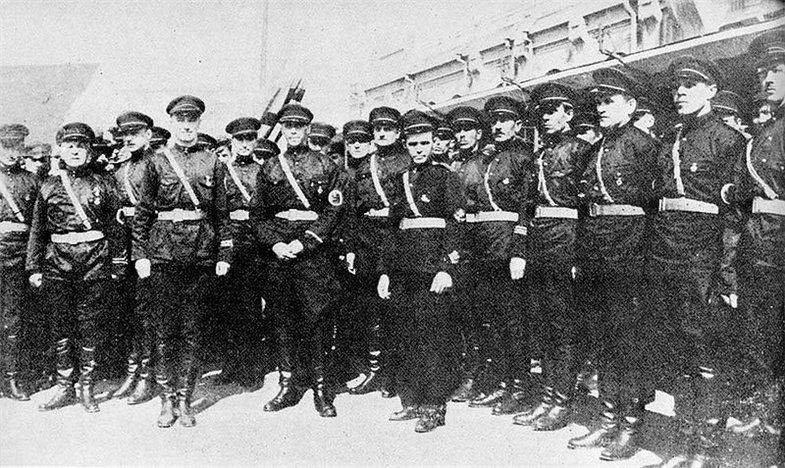
Fairly quickly, the WFTU became the largest political organization of the Russian emigration in Manchuria. Under the control of the WFTU, there were several public organizations - the Russian Women's Fascist Movement, the Union of Young Fascists - Avant-garde, the Union of Young Fascists - Avant-garde, the Union of Fascist Crumb, Union of Fascist Youth 28 June - 7 July 1935 was held in Harbin on 3-th World Congress of Russian Fascists, at which the party's program was adopted and its charter was approved. In 1936, the provisions “On the Party Greeting”, “On the Party Flag”, “On the National Flag and Anthem”, “On the Party Badge”, “On the Party Banner”, “On the Party Form and Hierarchical Signs”, “On religious icon. The flag of the WFTU represented a panel with a black swastika on a yellow background of a rhombus in a white rectangle, the party banner is a golden-colored cloth, on one side of which is the Holy Face of the Savior, and on the other is St. Prince Vladimir. The edges of the cloth are bordered with a black stripe, on which on one side are the inscriptions: “May God rise and be crushed by Him,” “God with us, understand the Gentiles and submit”, and on the other hand, “With God”, “God, Nation, Labor "," For the Motherland "," Glory to Russia ". In the upper corners of the image of a two-headed eagle; in the lower corners image of the swastika ". The party banner of the All-Russian Fascist Party was consecrated on 24 on May 1935 in Harbin by Orthodox hierarchs Archbishop Nestor and Bishop Dimitri. Party members wore a uniform consisting of a black shirt, a black jacket with golden buttons with a swastika, a black cap with an orange edging and a swastika on a cockade, a belt with a sword belt, black breeches with an orange edging and boots. An orange circle with a white border and a black swastika in the center was sewn onto the sleeve of the shirt and jacket. On the left hand, the party members wore distinctive signs of their belonging to one or another level of the party hierarchy. The public organizations operating under the party used similar symbolism and had their own uniform. So, members of the Union of Young Fascists - Avant-garde wore black shirts with blue shoulder straps and black caps with a yellow edging and the letter “A” on the cockade. The union consisted of teenagers 10-16 years, which should bring up "in the spirit of Russian fascism."
The supreme ideological, programmatic and tactical body of the All-Russian Fascist Party was proclaimed the Supreme Council of the WFTU, headed by the Chairman - Konstantin Rodzaevsky. In the intervals between congresses, the Supreme Council presided over the party, its members were elected at the WFTU congress. In turn, elected members of the Supreme Council of the WFTU elected a secretary and two vice-chairmen of the Supreme Council. At the same time, the party chairman had the right to “veto” any decisions of the congress. The Supreme Council included an ideological council, a legislative council, and a commission to study the USSR. The main part of the structural units of the WFTU acted on the territory of Manchuria, however, the WFTU was able to extend its influence to the Russian emigrant environment in Europe and the USA. In Europe, Boris Petrovich Tedley (1901-1944) became a resident of the party - in the past he participated in the Ice Campaign of General Kornilov and the St. George Knight. While living in Switzerland, Tedley first collaborated with the Russian People’s Liberation Movement, and then in 1935, he set up a cell of the All-Russian Fascist Party in Bern. In 1938, Mr. Rodzaevsky appointed Tadley as chairman of the Supreme Council for Europe and Africa. However, in 1939, Mr. Tedley was arrested by the Swiss authorities and was in prison until his death in 1944.
From Japanese Support to Opals
Since 1936, the All-Russian Fascist Party has begun preparations for anti-Soviet sabotage. The fascists acted on instructions from Japanese intelligence, which provided organizational support for sabotage actions. In the fall of 1936, several sabotage groups were abandoned on the territory of the Soviet Union, but most of them were identified and destroyed by border guards. Nevertheless, one group of six people managed to penetrate deep into Soviet territory and, having crossed the 400-kilometer route to Chita, appeared at the 7 demonstration in November of 1936, where anti-Stalinist leaflets were distributed. It is noteworthy that the employees of the Soviet counterintelligence could not detain the fascist propagandists on time, and the group returned safely to Manchuria. When the law on universal conscription was passed in Manzhou-Guo, Russian emigration as one of the population of Manchuria fell under its effect. In May, 1938, the Japanese military mission in Harbin, opened the Asano-Butai military-sabotage school, where young Russian emigrants were recruited. Following the model of the Asano Detachment, several more such detachments were created in other settlements of Manchuria. Units staffed by Russian émigrés were disguised as units of the Manchu army. The commander of the Kwantung Army, General Umedzu, ordered the preparation of saboteurs from among the Russian population of Manchuria, as well as to prepare a Red Army uniform in which sabotage groups sent to the territory of the Soviet Union could act as a disguise.
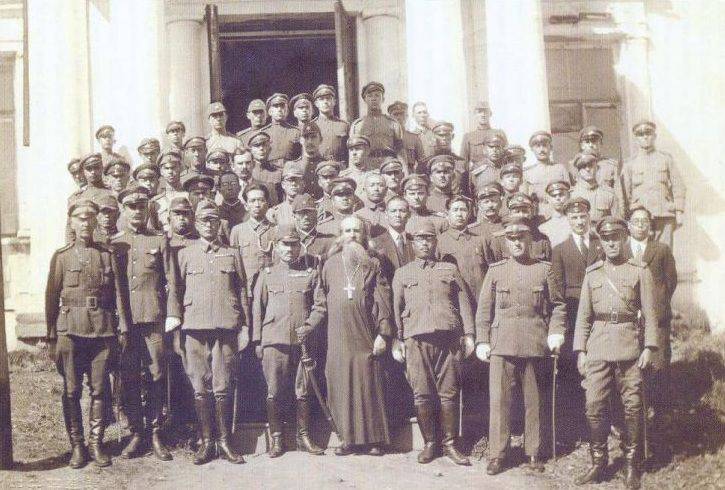
Another aspect of the activities of the Russian fascist party in Manzhou-go was the participation of a number of its activists in the criminal activity, behind which stood the Japanese field gendarmerie. Many fascists were involved in drug trafficking, the organization of prostitution, kidnapping and extortion. So, back in 1933, militants of the fascist party kidnapped a talented pianist Seeds Kaspa and demanded that his father Joseph Kaspa, one of the richest Harbin Jews, pay the ransom. However, the Nazis did not even wait for the money and first sent the son’s ears to the unfortunate father, and then his body was found. This crime made even the Italian fascists dissociate themselves from the activities of Russian like-minded people, who were called "a dirty spot on the reputation of fascism." The involvement of the party in criminal activities contributed to the disappointment of some previously active fascists in the activities of Rodzaevsky, which led to the first withdrawals from the party.
The Japanese special services funded the activities of the WFTU on the territory of Manzhou-go, which allowed the party to develop its structures and finance the education of the younger generations of Russian émigrés in a fascist spirit. Thus, members of the Union of Fascist youth received the opportunity to enter the Stolypin Academy, which was, in a way, a party educational institution. In addition, the party supported the Russian orphans by organizing the Russian House - an orphanage, where children were also brought up in a proper spirit. In Qiqihar, a fascist radio station was established, broadcasting, among other things, to the Soviet Far East, and the fascist ideology was practically officially propagandized in most Russian schools in Manchuria. In 1934 and 1939 Konstantin Rodzaevsky met with General Araki, a Japanese war minister who was considered the head of the “war party”, and in 1939 with Matsuoka, who later became the foreign minister of Japan. The Japanese leadership treated the Russian fascists so loyally that it allowed them to congratulate Emperor Hirohito on the 2600 anniversary of the creation of the Japanese Empire. Thanks to the Japanese funding, in the All-Russian Fascist Party, literary propaganda activity was set at a fairly high level. The main "writer" and propagandist of the WFTU was, of course, Konstantin Rodzaevsky himself. The authorship of the party’s leader has published books “The ABC of Fascism” (1934), “Criticism of the Soviet State” in two parts (1935 and 1937), “The Russian Way” (1939), and “The State of the Russian Nation” (1942). In 1937, the WFTU was transformed into the Russian Fascist Union (RFU), and in 1939, the 4 Congress of Russian Fascists was held in Harbin, which was to be the last in the history of the movement. On it there was another conflict between Rodzaevsky and part of his supporters. A group of fascists, who had by that time understood the true essence of the Hitler regime, demanded that Rodzaevsky break off all ties with Hitler Germany and remove the swastika from party banners. They motivated this demand with the hostility of Hitler to Russia and the Slavs as a whole, and not just to the Soviet political system. However, Rodzaevsky refused from the anti-Hitler turn. The Second World War was approaching, which played a pivotal role in the fate of not only Russian fascism, but also the whole of Russian emigration in Manchuria. In the meantime, the number of party structures of the WFTU - RFU was about 30 000 people. The branches and cells of the party operated practically everywhere where Russian émigrés lived - in Western and Eastern Europe, the USA, Canada, the countries of Latin America, North and South Africa, and Australia.
The first problems faced by the RFU after the Soviet Union and Germany signed the Molotov-Ribbentrop Pact. Then the USSR and Germany temporarily began to cooperate with each other, and this cooperation for the leadership of Germany was of greater interest than the support of emigrant political organizations. Many activists of the RFU were extremely dissatisfied with the fact that Germany began to cooperate with the USSR. An epidemic of withdrawals from the RFU began, and Rodzayevsky himself subjected the pact to harsh criticism. 22 June 1941 The Nazi Germany attacked the Soviet Union, which provoked strong approval from Rodzayevsky. The leader of the RFU saw in Hitler’s invasion a chance for the possible overthrow of the Stalinist regime and the establishment of fascist power in Russia. Therefore, the RFU began strenuously to seek entry into the war against the USSR and the Japanese Empire. But the Japanese had other plans - engaged in confrontation with the United States and Britain in the Asia-Pacific region, they did not at all want to enter into an armed confrontation with the USSR at the moment. Since the agreement on neutrality was signed between Japan and the Soviet Union as early as April 1941, the Japanese special services were instructed to minimize the aggressive potential of the Russian fascists in Manchuria. The circulation of the newspaper, in which Rodzaevsky called on Japan to go to war with the USSR, was confiscated. On the other hand, many supporters of the RFU, who received news of the atrocities committed by the Nazis on the territory of Russia, left the organization or at least refused to maintain the position of Rodzaevsky.
As the situation of Germany deteriorated on the Soviet front, the Japanese leadership less and less wanted open confrontation with the USSR and took steps to avoid straining relations. So, in July 1943, the Japanese authorities banned the activities of the Russian Fascist Union in the territory of Manchuria. However, according to some data, the reason for the ban on the RFU was not only and not so much the Japanese’s fear of worsening the already extremely tense relations with the Soviet Union, but also the presence of Soviet agents in the ranks of Russian émigrés who worked on the NKVD and collected information on the deployment of Japanese troops Manchuria, Korea and China. In any case, the fascist party ceased to exist. From that time on, Rodzaevsky, himself under the supervision of the Japanese special services, was forced to concentrate on working in the structures of the Bureau of Russian Emigrant Affairs, where he was responsible for cultural and educational activities. As for his longtime partner, and then the enemy in the ranks of the Russian fascist movement - Anastasia Vonsyatsky, he, who lives in the United States, was arrested after the start of the war on charges of spying for the Axis countries and was imprisoned.
At the beginning of the 1940's BREM was headed by Major General Vladimir Kislitsyn.
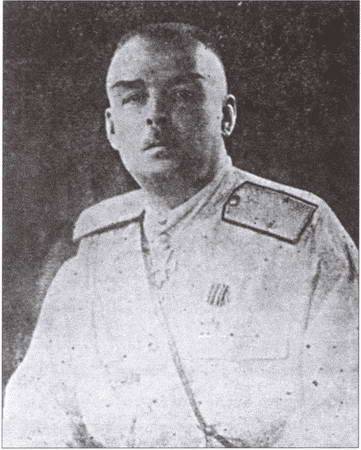 In fact, Vladimir Alexandrovich Kislitsyn only rose to the rank of colonel in the tsar’s army, but he fought heroically — as part of the 23 of the Odessa Border Brigade, and then at the 11 of the Riga Dragoon Regiment. He was wounded many times. In 1918, the city of Kislitsyn enlisted in the hetman army of Ukraine, where he commanded a cavalry division, and then a corps. After his arrest by the Petliurists in Kiev, however, he was released at the insistence of the Germans and left for Germany. In the same 1918 from Germany, he again returned to Russia seized by the Civil War and made his way to Siberia, where he commanded the division at Kolchak, and then with a special Manchurian detachment, at Semenov. In 1922, Kislitsyn emigrated to Harbin, where he began working as a dental technician, in parallel with the local police. The social activity of Vladimir Kislitsyn was at this time reduced to supporting Grand Duke Kirill Vladimirovich as the heir to the throne. In 1928, the Grand Duke produced for this Colonel Kislitsyn into the major generals of the Russian imperial army. Later, Kislitsyn began to cooperate in the structures of BREM and headed the Bureau, but he died in 1944. After the death of Kislitsyn, the leader of the BREM, as it turned out - the last, was Lieutenant-General Lev Filippovich Vlasyevsky (1884-1946). He was born in Transbaikalia - in the village of First Chindant, and in 1915, after the start of the First World War, he was drafted into the army, graduated from the school of ensigns and by the end of the war reached the lieutenant. Under Ataman Semenov, Vlasyevsky was first chief of the office, and then chief of the Cossack division of the headquarters of the Far Eastern Army.
In fact, Vladimir Alexandrovich Kislitsyn only rose to the rank of colonel in the tsar’s army, but he fought heroically — as part of the 23 of the Odessa Border Brigade, and then at the 11 of the Riga Dragoon Regiment. He was wounded many times. In 1918, the city of Kislitsyn enlisted in the hetman army of Ukraine, where he commanded a cavalry division, and then a corps. After his arrest by the Petliurists in Kiev, however, he was released at the insistence of the Germans and left for Germany. In the same 1918 from Germany, he again returned to Russia seized by the Civil War and made his way to Siberia, where he commanded the division at Kolchak, and then with a special Manchurian detachment, at Semenov. In 1922, Kislitsyn emigrated to Harbin, where he began working as a dental technician, in parallel with the local police. The social activity of Vladimir Kislitsyn was at this time reduced to supporting Grand Duke Kirill Vladimirovich as the heir to the throne. In 1928, the Grand Duke produced for this Colonel Kislitsyn into the major generals of the Russian imperial army. Later, Kislitsyn began to cooperate in the structures of BREM and headed the Bureau, but he died in 1944. After the death of Kislitsyn, the leader of the BREM, as it turned out - the last, was Lieutenant-General Lev Filippovich Vlasyevsky (1884-1946). He was born in Transbaikalia - in the village of First Chindant, and in 1915, after the start of the First World War, he was drafted into the army, graduated from the school of ensigns and by the end of the war reached the lieutenant. Under Ataman Semenov, Vlasyevsky was first chief of the office, and then chief of the Cossack division of the headquarters of the Far Eastern Army. The defeat of Japan and the collapse of Russian fascism in Manchuria
The news of the beginning of the hostilities of the Soviet-Mongolian troops against the Japanese Kwantung Army was a real shock for the Russian émigré leaders living in Manchuria. If the tsarist conservative generals and colonels were quietly waiting for their fate, hoping only for a possible rescue by the retreating Japanese troops, the more flexible Rodzaevsky swiftly restructured. He suddenly became a supporter of Stalinism, declaring that a nationalist turnaround took place in the Soviet Union, involving the return of officer ranks in the army, the introduction of separate education for boys and girls, the revival of Russian patriotism, the glorification of the national heroes Ivan the Terrible, Alexander Nevsky, Suvorov and Kutuzov. In addition, in the opinion of the “late” Rodzayevsky, Stalin managed to “re-educate” Soviet Jews, who were “pulled out of the Talmudic environment” and therefore no longer presented a danger, becoming ordinary Soviet citizens. Rodzaevsky wrote a penitential letter to I.V. Stalin, in which, in particular, emphasized: “Stalinism is the very thing that we mistakenly called“ Russian fascism, ”this is our Russian fascism, cleansed of extremes, illusions and delusions.” Russian fascism and Soviet communism asserts he, have common goals. "Only now it is clear that the October revolution and the five-year plans, the ingenious leadership of I.V. Stalin lifted Russia - the USSR to an unattainable height. Long live Stalin, the salutary combination of nationalism and communism, which indicated a way out of the impasse to all the peoples of the earth - the greatest commander, the unsurpassed organizer - Leader! ” Counterintelligence from SMERSH promised Konstantin Rodzayevsky worthy propagandist work in the Soviet Union and the leader of the Russian fascists "fell for it." He came in contact with Smerzhevites, was arrested and taken to Moscow. Lieutenant-General Grigory Semyonov was arrested by the landing of the NKVD at his villa in Dairen, which for many symbolized the anti-Soviet white movement in the Far East and Transbaikalia. Semenov was arrested on August 24 1945.
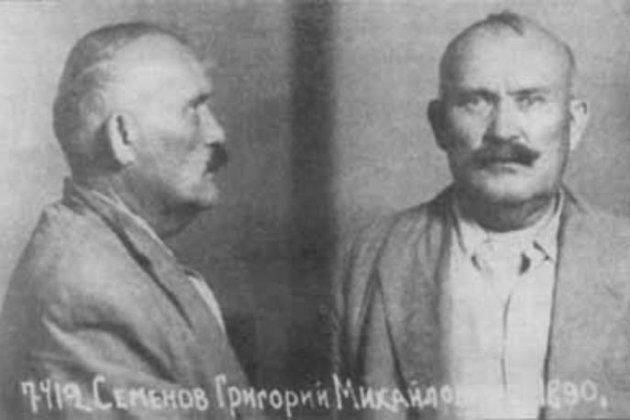
Obviously, the ataman did not expect the appearance of Soviet troops in Dairen, because he was confident that after Japan’s 17 surrender on August 1945, the Soviet troops would not advance further and would be able to sit out the dangerous time in his villa. But Semenov miscalculated on the same day, 24 August 1945, the plane was sent to Moscow - along with a group of other detainees, among whom were prominent white generals - the leaders of the BREM, and propagandists of the Russian Fascist Union. In addition to the generals Vlasyevsky, Baksheyev and Semenov, among those arrested was also Ivan Adrianovich Mikhailov (1891-1946) - the former Kolchak’s Minister of Finance, and after emigration - one of the companions of Rodzaevsky and the editor of the newspaper “Harbin time”, in which anti-Soviet materials were published . Lev Pavlovich Okhotin (1911-1948), the “right hand” of Rodzayevsky, a member of the Supreme Council of the WFTU and the head of the organizational department of the fascist party, was also arrested.
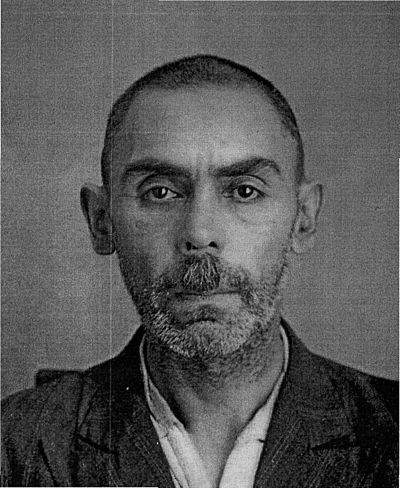 Boris Nikolaevich Shepunov (1897-1946), arrested along with other members of the BREM, was an even more dangerous figure. In the past, the white officer was a Semenovets, he was in the 1930-e - 1940-e. worked as an investigator of the Japanese police at the station "Pogranichnaya" and at the same time headed the department of the Bureau of Russian Emigrant Affairs in Mukden. It was Shepunov who led the preparation and transfer of spies and saboteurs from Manchuria to the territory of the Soviet Union, for which in 1938 he was appointed head of the BREM department in Harbin. When in 1940, twenty activists of the Russian Fascist Union were arrested on charges of espionage in favor of the USSR, and then they were acquitted by a Japanese court and released, Shepunov supervised their extrajudicial execution. In 1941, the Shepunov formed a White Guard detachment intended for an armed invasion of Soviet territory. Prince Nikolai Aleksandrovich Ukhtomsky (1895-1953), unlike most of the above-mentioned persons detained by SMERSH, did not directly organize the organization of sabotage and espionage, but was active in propaganda, speaking from sharp anti-communist positions.
Boris Nikolaevich Shepunov (1897-1946), arrested along with other members of the BREM, was an even more dangerous figure. In the past, the white officer was a Semenovets, he was in the 1930-e - 1940-e. worked as an investigator of the Japanese police at the station "Pogranichnaya" and at the same time headed the department of the Bureau of Russian Emigrant Affairs in Mukden. It was Shepunov who led the preparation and transfer of spies and saboteurs from Manchuria to the territory of the Soviet Union, for which in 1938 he was appointed head of the BREM department in Harbin. When in 1940, twenty activists of the Russian Fascist Union were arrested on charges of espionage in favor of the USSR, and then they were acquitted by a Japanese court and released, Shepunov supervised their extrajudicial execution. In 1941, the Shepunov formed a White Guard detachment intended for an armed invasion of Soviet territory. Prince Nikolai Aleksandrovich Ukhtomsky (1895-1953), unlike most of the above-mentioned persons detained by SMERSH, did not directly organize the organization of sabotage and espionage, but was active in propaganda, speaking from sharp anti-communist positions. The process of "Semenov". Rehabilitation can not be.
All of these persons were transported from Manchuria to Moscow. In August, 1946, a year after his arrest, appeared before the court: Semenov, Grigory Mikhailovich; Rodzaevsky, Konstantin Vladimirovich; Baksheev Alexey Proklovich, Vlasyevsky, Lev Filippovich, Mikhailov, Ivan Adrianovich, Shepunov, Boris Nikolaevich; Okhotin, Lev Pavlovich; Ukhtomsky, Nikolai Aleksandrovich. The trial of the “Semenovtsy”, as the Japanese henchmen detained in Manchuria in the Soviet press were named, was carried out by the Military Collegium of the USSR Supreme Court under the leadership of Colonel-General Justice V.V. Ulrich The court found that the defendants for many years carried out active subversive activities against the Soviet Union, being paid agents of Japanese intelligence and organizers of anti-Soviet organizations operating in the territory of Manchuria. The troops commanded by the generals Semenov, Baksheev and Vlasyevsky during the Civil War led an armed struggle against the Red Army and the Red partisans, participating in massacres of the local population, robberies and murders. Already at that time, they began to receive funds from Japan. After the defeat in the Civil War, the Semenovites fled to Manchuria, where they created anti-Soviet organizations — the Union of Cossacks in the Far East and the Bureau of Russian Emigrant Affairs in Manzhou-Go. The court found that all the defendants were agents of the Japanese special services and were engaged in the creation of espionage and sabotage detachments sent to the territory of the Soviet Union. In the event of the beginning of the war of Japan against the Soviet Union, the White Guard detachments concentrated in Manchuria were assigned the task of directly invading the territory of the Soviet state.
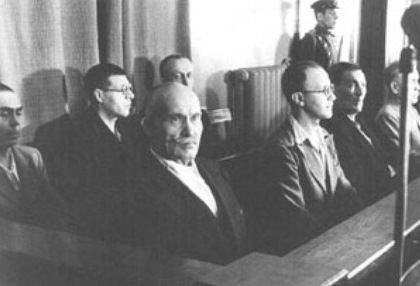 After the completion of the trial, the Military Collegium of the USSR Supreme Court sentenced: Semenov, Grigory Mikhailovich to death by hanging with confiscation of all property belonging to him; Rodzaevsky Konstantin Vladimirovich, Baksheev Alexey Proklovich, Vlasyevsky Lev Fedorovich, Mikhailov Ivan Adrianovich and Shepunov Boris Nikolayevich - to death by shooting with confiscation of property. Ukhtomsky Nikolai Alexandrovich was sentenced to twenty years of hard labor, Okhotin Lev Pavlovich - to fifteen years hard labor, also with confiscation of all their property. On the same day 30 of August 1946 in Moscow all defendants sentenced to death were executed. As for Nikolai Ukhtomsky, he, sentenced to twenty years in the camp, died 7 years after the sentence was passed - in 1953 in Rechlag near Vorkuta. Lev Okhotin died at a logging site in the Khabarovsk Territory in 1948, after serving 2 from 15 rendered.
After the completion of the trial, the Military Collegium of the USSR Supreme Court sentenced: Semenov, Grigory Mikhailovich to death by hanging with confiscation of all property belonging to him; Rodzaevsky Konstantin Vladimirovich, Baksheev Alexey Proklovich, Vlasyevsky Lev Fedorovich, Mikhailov Ivan Adrianovich and Shepunov Boris Nikolayevich - to death by shooting with confiscation of property. Ukhtomsky Nikolai Alexandrovich was sentenced to twenty years of hard labor, Okhotin Lev Pavlovich - to fifteen years hard labor, also with confiscation of all their property. On the same day 30 of August 1946 in Moscow all defendants sentenced to death were executed. As for Nikolai Ukhtomsky, he, sentenced to twenty years in the camp, died 7 years after the sentence was passed - in 1953 in Rechlag near Vorkuta. Lev Okhotin died at a logging site in the Khabarovsk Territory in 1948, after serving 2 from 15 rendered.In 1998, in the wake of a fashionable review of the Stalinist sentences, the Military Collegium of the Supreme Court of the Russian Federation proceeded to review criminal cases against all defendants in the Semenovtsi case, with the exception of Ataman Semenov, who was recognized in 1994 for his crimes not subject to rehabilitation. As a result of the work of the college, it was established that all persons convicted of 30 on August 1946 were indeed guilty of the acts incriminated to them, with the exception of anti-Soviet agitation and propaganda, provided for in 58-10 article h. 2. Therefore, in relation to all the accused, the sentences of this article were annulled. In the remaining articles, the guilt of the accused was confirmed, as a result of which the Military Collegium of the Supreme Court of the Russian Federation left the sentences unchanged and found the listed persons not subject to rehabilitation. In addition, the Sidra citizens were arrested and taken to the USSR by Professor Nikolai Ivanovich Nikiforov, the founder of the fascist movement in Harbin, who was sentenced to ten years in the camps and died in 1951 in prison.
Anastasius Vonsyatsky was released from an American prison where he left 3,5 for the year in 1946 and continued to live in the USA in St. Petersburg, moving away from political activities and writing memoirs. In 1953, Vonsyatsky opened a museum in memory of the last Russian Tsar Nicholas II in St. Petersburg. Vonsyatsky died in 1965 at the age of 66. Unfortunately, in modern Russia there are people who admire the activities of the fascists 1930-xNNXX-s. and forgetting that Semenov, Rodzaevsky and people like them were tools of anti-Russian politics, and their actions were stimulated by their own lust for power and money from Japanese and German special services.
Information